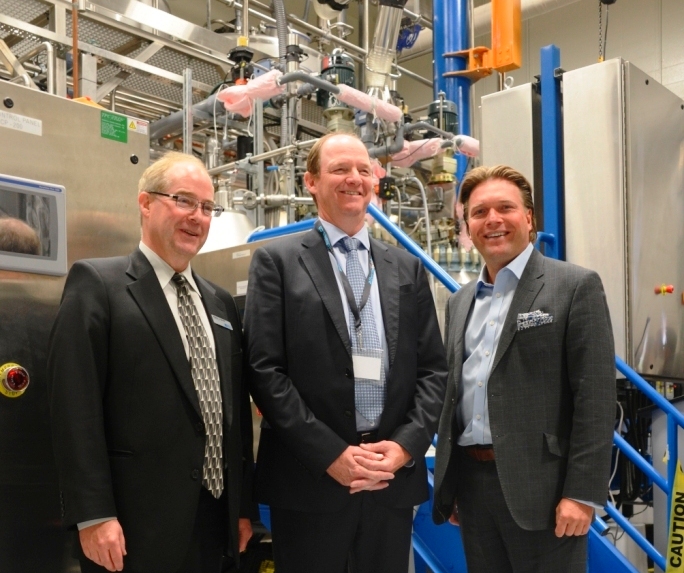
Features
Research & Innovation
Cellulose nanocrystal production begins in Alberta
Alberta’s cellulose nanocrystals (CNC) pilot plant, which produces up to 100 kilograms of CNC per week, was commissioned in early September at Alberta Innovates-Technology Futures’ (AITF) Mill Woods facility before a crowd of...
October 1, 2013 By Pulp & Paper Canada
 Stephen Lougheed
Stephen Lougheed Alberta’s cellulose nanocrystals (CNC) pilot plant, which produces up to 100 kilograms of CNC per week, was commissioned in early September at Alberta Innovates-Technology Futures’ (AITF) Mill Woods facility before a crowd of researchers, industry leaders and government representatives.
The $5.5-million pilot plant, created through a collaboration of the governments of Canada and Alberta in partnership with industry under the Western Economic Partnership Agreement (WEPA), uses wood and straw pulp from plants such as flax and hemp to create CNC for testing in commercial applications that will lead to production.
CNC has many useful properties, including great strength, optical characteristics and very large surface area at the nano scale. The pilot plant enables researchers to test and validate CNC from a variety of forest and agriculture materials for use in diverse applications such as drilling fluids, paints and industrial coatings, automotive components, building materials, plastics and packaging.
“Alberta Innovates-Technology Futures is proud to host and operate Western Canada’s only CNC pilot plant,” said Stephen Lougheed, AITF’s president and CEO. “We’re able to provide researchers with more CNC than ever before, thereby accelerating the development of commercial applications.”
Members of Western Canada’s growing CNC communities of expertise and interest spent the afternoon exploring potential commercial applications for the cellulose-based material.
The grand opening of the CNC pilot plant’s is planned for 2014.
Print this page